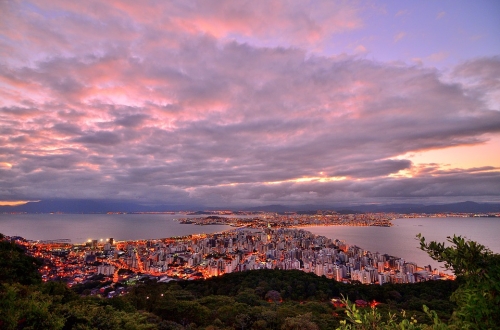The largest country in South America and home to a sizeable expat community, Brazil is known for its beautiful beaches, lush jungles and vibrant cities. Brazil has many job opportunities to offer on account of its robust economy and thriving mining, agricultural and manufacturing sectors.The capital city of Brasilia is a UNESCO World Heritage Site and the abode of the nation’s government. It is also the headquarters of a number of national and international businesses. Brazil is the only Portuguese-speaking country in South America. Many expats have made cities like São Paulo, Rio de Janeiro, Brasilia and Macaé their home over the years. This is because there are more employment opportunities available in the major cities. The cities also have better infrastructure than the rural areas. Here are nine questions to ask yourself before you move to Brazil.
What vaccinations do I need before moving to Brazil?
It is ideal to talk to your doctor at least four to eight weeks before you move to Brazil about the vaccines and medicines you may need. The vaccinations you will require can vary based on your medical history and itinerary. The vaccinations for Brazil recommended by the Centers for Disease Control and Prevention (CDC) and the World Health Organization (WHO) include the yellow fever vaccine, which is especially meant for those who will be travelling throughout the region. The other necessary vaccines include typhoid, hepatitis A and B, influenza, rabies, tetanus, diphtheria and pertussis.
Will I encounter any health risks in Brazil?
The yellow fever vaccination is advised for those living in Brasilia and in the rural or jungle areas. This vaccine is not required to enter the state, but it is strongly recommended. Irrespective of where you live in Brazil, the hepatitis A and B vaccines are recommended for longer stays. Malaria is a risk in certain parts of the country, such as the urban regions of Porto Velho and Manaus. Expats are advised to take precautions against malaria and Dengue fever. Expats should consult their doctor about vaccinations and other health risks before moving to Brazil.
Which Brazilian city is the best place to live and work?
Rio de Janeiro is the most popular city in Brazil. Home to the iconic Christ the Redeemer statue, this glamorous city is also one of the best tourist destinations in the world. Its clear beaches, rich natural scenery and lively community are the reasons why millions of visitors travel to this city every year. Rio de Janeiro is also an important commercial center and has the second largest economy among Brazilian cities.
There are a number of educational institutions located here, and the city is also home to thriving oil, textile, shipbuilding, media and communications industries. Its diversified economy makes it a popular expat destination. Its popularity and importance within Brazil, and internationally, has led to stiff competition in the job market. Most expats move to Rio de Janeiro on transfers, and as part of a relocation package. Expats moving to Rio de Janeiro will undoubtedly notice the disparity between the wealth on one hand, and poverty on the other. Crime is also an issue in the city, although the local authorities have been making efforts to deal with it. Since Rio de Janeiro is so densely populated, finding accommodation may be difficult for new expats. Expats moving with children will find a number of international schools. Since public healthcare is not very advanced, expats are advised to have a comprehensive private health insurance plan.

The cosmopolitan city of Sao Paulo is known locally as Sampa. It is Brazil’s largest city and has long attracted immigrants due to its importance as a commercial and industrial center. The city may seem chaotic at first and expats should expect to be overwhelmed by the crowds and sheer largeness of the city. Sao Paulo’s public services are not up to the mark, and it also suffers from pollution, crime and traffic congestion. As with other Brazilian cities, there is also poverty and social inequality.
But Sao Paulo’s multiculturalism is its great advantage, with several minority groups living here. However, security is a problem and the crime rate is an essential consideration for those moving to Sao Paulo. Expats are advised to stay alert, especially in the areas where the risks are higher. Sao Paulo has a high cost of living, and this must be taken into account when negotiating an employment package. Children from overseas can attend the local schools, but most expats prefer the international schools, due to the higher standards of education. Sao Paulo has become a popular destination for medical tourism in recent years.
There is a considerable expat community in the capital city of Brasilia. Since it is the seat of the government, there are diplomats, foreign correspondents and journalists from different nationalities living here. Brasilia has a population of about 2.5 million residents. It is a quieter city than Sao Paulo and Rio de Janeiro. The city is well connected by public transportation. The carnival culture, which is very much a part of Brazil’s other cities, is replaced by a more tranquil culture in Brasilia.
The fourth largest city, Belo Horizonte is located in the state of Minas Gerais, in southeastern Brazil. It is a mineral-rich region. It also offers ideal conditions for farming. In fact, Belo Horizonte is an important distribution and processing center for the country’s agricultural and mining industry. The interesting aspect of Belo Horizonte is that the gap between the wealthy and poor, which is apparent in most parts of the country, is not to be found here. This is because the local government takes efforts to ensure that all citizens can eat, thereby alleviating food poverty. Like Brasilia, the nearest beach is quite a distance away. Belo Horizonte has its own unique character of a diverse alternative scene. There are several bars and pubs located throughout the city. Some of the most popular neighborhoods among expats are Serra, Savassi and Lourdes.
Will I be able to afford Brazil’s cost of living?
Brazil’s cost of living is relatively high, but the quality of life is based on the kind of lifestyle expats are able to have. There is a vast gap between the wealthy and poor in Brazil, but expats in general will not have much of a problem for their day-to-day expenses. It is less expensive to live in Brazil’s rural areas than in the major cities. The country has in the recent past made efforts to come out of extreme poverty and the income inequality has been reduced. Expats on international salaries are considered as being among the wealthy, while the upper middle class includes expats that are making a good local salary.

Rental accommodation is fairly expensive in Brazil, and could turn out to be the biggest expense of the expat salary. Some expats may receive a housing allowance, which can help make up for the high prices. Areas that are slightly beyond central areas may be easier to afford, however in such cases, the transport costs tend to increase. Food costs are varied in the country. Eating out at restaurants can be expensive, while groceries are moderately priced.
How is Brazil’s schooling system?
Due to its rich flora and fauna and great natural landscapes, Brazil is a delight for children, and also gives them a chance to learn. However, despite the country’s economic growth over the last few years, the public education system has received low funding and is faced with a number of structural problems. Education standards in public schools are not very high and there have also been incidents of overcrowding, insufficient materials and lack of teaching staff.
Schooling is compulsory for children between the ages of 6 and 14, and this mandatory education for nine years is the equivalent of elementary school, called Ensino Fundamental. During this time, public schools are free. Secondary school or Ensino Médio continues between the ages of 15 and 18.
Since there is not enough space, schools attempt to accommodate the high number of students by running three school sessions, occurring in the morning, afternoon and evening. Children attend a session a day. The medium of instruction in public schools is Portuguese, and therefore most expats prefer to send their kids to international or private schools.

Brazil has many private and international schools, most of them located in the major cities of Brasilia, Sao Paulo and Rio de Janeiro. Most of the international schools incorporate the American or British curriculum systems. There are also schools that cater to the children of other nationalities such as Italian, German and French, among others. Some international schools offer the International Baccalaureate diploma program. The international schools offer a high standard of education, and there are also many local residents who choose to send their kids to these schools. The student body at international schools is multicultural and composed of students from different countries. Private schools in Brazil follow the local curriculum. Some of these institutions are religious and some offer bilingual instruction. The fees of private schools are lower than international schools.
What are the pollution levels like in Brazil?
The country has witnessed a rise in pollution levels due to rapid urbanization in the major cities. The cities of Rio de Janeiro and Sao Paulo especially have higher levels of pollution. The local governments have been taking steps to control the pollution. For instance, in Sao Paulo and other major cities, there are restrictions on driving.
What kind of healthcare will I receive in Brazil?
Brazil provides free universal access to healthcare. All individuals living in the country legally can access free medical care in the form of medical consultations, hospital services and surgery that are provided by the public healthcare system. However, this system is underfunded, and there may be long waiting times at public hospitals. Many expats opt also for private healthcare. There are also a number of companies that provide private medical care plans as part of the employment package.
Brazil’s major cities are known to have good healthcare facilities, and general physicians, specialists and hospitals are available throughout the cities. In rural areas, the conditions are not as good. In the northeast especially, medical care may not be always be available. Due to the poor conditions, the government created a new program in 2013 called Mais Médicos (‘More Doctors’), which aims to attract overseas doctors to come and work in the Brazilian countryside on three-year contracts.
How is the public transportation in Brazil?
Brazil has a problem with traffic congestion, but it is still advisable to have your own car for getting around because the country’s infrastructure is not up to date. The public bus stations and airports are often overcrowded. The bigger cities have bus and metro networks, as well as taxi ranks and domestic and international airports. But in the smaller cities, there are limited options. The best thing expats can do in Brazil is to buy a car once they arrive. Buying a new car in Brazil is more economical that importing one from your home country. Brazil has the largest road network in South America and expats can use their national driver’s license for up to six months, provided it is translated into Portuguese and verified by the road traffic authorities.
Can I buy property in Brazil?
Foreigners can buy and own property in Brazil. There are no restrictions on the amounts invested or in the number of properties held. There may be some restrictions on real estate in the rural areas or in regions near the borders. In fact, the government encourages overseas investment. Once you have narrowed down on the property you wish to buy, you can make a verbal offer through a real estate agent. Once the terms are agreed upon, you can appoint a lawyer to formalize the agreement and to supervise the purchase proceedings such as paying the deposit or reservation payments necessary to secure the deal.
Have you lived in Brazil? Fill in the questions here to be featured in an interview and share your experiences with other readers!

